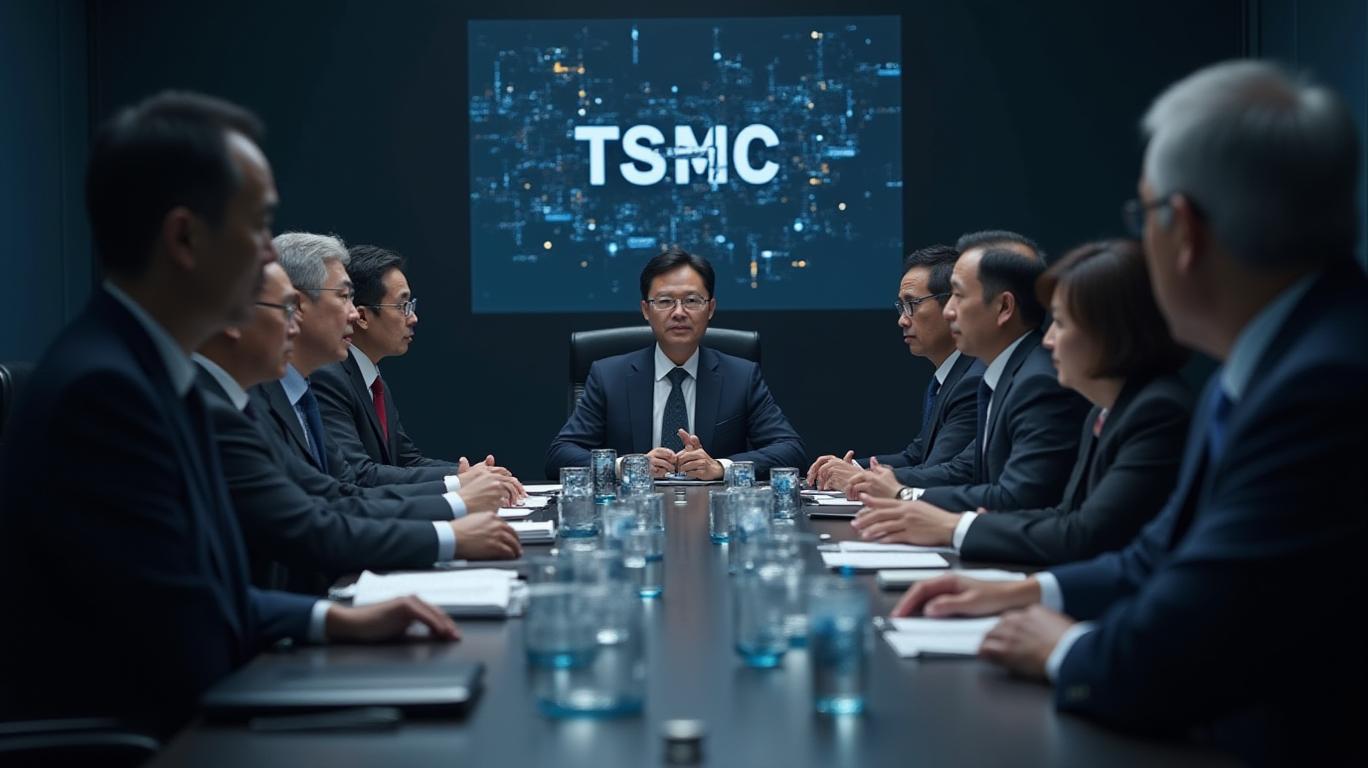TSMC Eyes Intel Chip Factory Control Amid Strategic Maneuvers and U.S. Security Concerns
Recent performance for TSMC (TSM) saw a 1.03% increase as of last week, with a downturn of 1.08% over the past week, while year-to-date it has grown by 3.25%, placing its market valuation at approximately 10575.73 billion. These figures reflect TSMC's resilience amid a fluctuating semiconductor market.
According to sources, TSMC and Broadcom are contemplating potential transactions involving Intel, where TSMC might exert control over some or all of Intel's chip factories. This evaluation is still in preliminary stages and conducted informally. Intel's strategic discussions, led by Executive Chairman Frank Yeary, emphasize shareholder value maximization.
The U.S. government's stance is a potential hurdle in negotiations due to national security concerns, particularly against foreign entities controlling Intel's facilities. TSMC, under some pressure, explores this option under indirect encouragement from discussions involving Trump administration officials.
Several complexities loom in remodeling Intel’s primarily internal production factories to align with TSMC's advanced chip production practices. These challenges include significant financial and logistical investments, compounded by restrictive U.S. immigration policies affecting necessary workforce mobility.
Intel’s market struggles have made it a target for acquisition interests, especially after its former CEO Pat Gelsinger stepped down in December. Recent trends show an increased appetite among investors following Intel's decision to separate its manufacturing arm, seen by analysts as preliminary moves towards potential business segmentation.
TSMC, enjoying considerable revenue from AI technology customers like NVIDIA and AMD, benefits from Intel's manufacturing setbacks and increased outsourcing trends. Despite market position challenges, TSMC's strategic expansions, including potential increased outsourcing contracts from Intel, signal robust growth avenues.
Further promising indicators for TSMC include ongoing endeavors like U.S. expansion which would bolster its position, aided by favorable legislative frameworks aimed at revitalizing domestic manufacturing expertise and mitigating tariff tensions.
Despite enduring some operational disruptions from recent seismic events, TSMC maintains confidence in its fiscal and production forecasts, underpinned by robust demand and strong strategic positioning across the semiconductor landscape.

Market Watch column provides a thorough analysis of stock market fluctuations and expert ratings.
Latest Articles
Stay ahead of the market.
Get curated U.S. market news, insights and key dates delivered to your inbox.

Comments
No comments yet